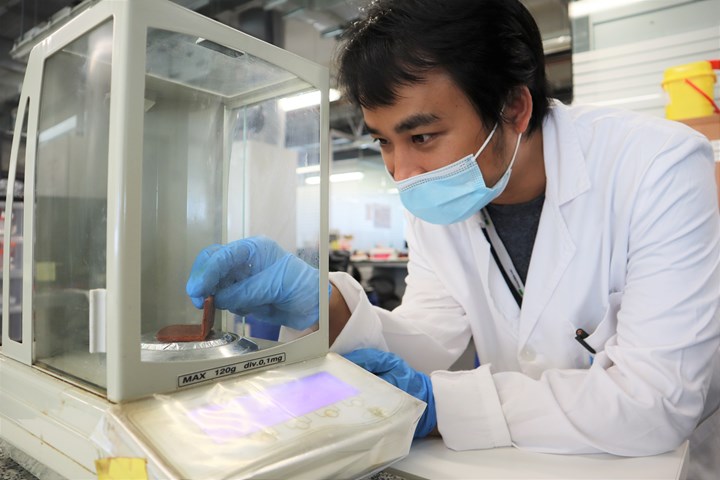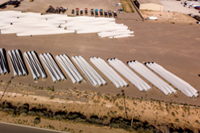IMDEA Materials Institute introduces novel recyclable sandwich structure composites
A new generation of sustainable composite materials with flame-retardant properties currently being developed also offer improved performance and designability.
The Madrid Institute of Advanced Studies in Materials Science (IMDEA Materials Institute, Madrid, Spain) is playing its part in the European Union’s transition to a circular economy with new work in recyclable, flame-retardant materials.
Its research is said to be producing advances in environmentally friendly sandwich-structured composites, widely used in the aerospace, automobile, shipping and rail industries. Such materials have traditionally been manufactured in a Nomex honeycomb form. However, as researcher Dr. Xuebao Lin explains, such material structures are almost impossible to recycle or reuse.
“Traditional sandwich composites are composed of different materials joined with a strong adhesive and it’s very difficult to separate them,” Dr. Lin says. “They cannot be recycled. After their service life, they become waste and are either burnt or buried. We have proved that, not only is it possible to completely recycle the materials we are developing, but that the recycling process is also extremely low cost.”
Dr. Lin has been working as part of the Institute’s High-Performance Polymers and Fire Retardants research group led by Prof. Dr. De-Yi Wang. This group is involved in a number of projects related to improved sustainability and fire-resistant materials.
While improved sustainability is one of the key objectives of Dr. Lin’s work, the new sandwich-structured composites will also offer a host of additional benefits for industry, according to researchers.
“For our material to only be recyclable is not enough,” Dr. Lin adds. “When a customer wants to use a new material, that means risk for them, so it also needs to offer functional advantages such as being lightweight, with good designability and flame retardancy. The materials we are developing at IMDEA Materials can offer those benefits.”
Related Content
-
The state of recycled carbon fiber
As the need for carbon fiber rises, can recycling fill the gap?
-
Thermoplastic composites welding advances for more sustainable airframes
Multiple demonstrators help various welding technologies approach TRL 6 in the quest for lighter weight, lower cost.
-
Carbon fiber in pressure vessels for hydrogen
The emerging H2 economy drives tank development for aircraft, ships and gas transport.
















